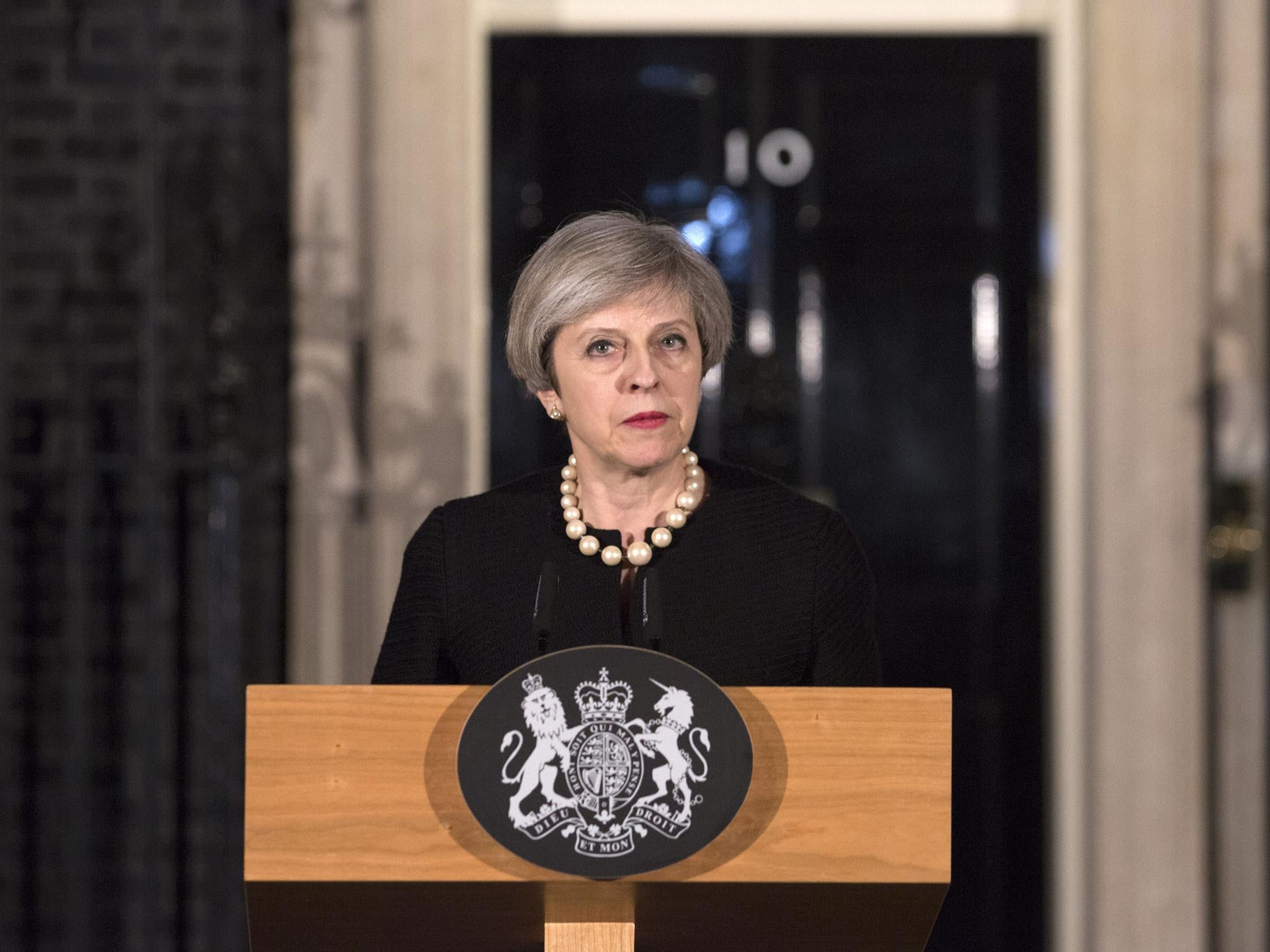If Theresa May wants to prove she's a strong Brexit leader, she should get herself to Rome
Margaret Thatcher brought every foreign bank, finance house, investment fund or insurance firm to London. The Prime Minister would be wise to remind her fellow European leaders of the great contribution Britain has made to the continent


Your support helps us to tell the story
From reproductive rights to climate change to Big Tech, The Independent is on the ground when the story is developing. Whether it's investigating the financials of Elon Musk's pro-Trump PAC or producing our latest documentary, 'The A Word', which shines a light on the American women fighting for reproductive rights, we know how important it is to parse out the facts from the messaging.
At such a critical moment in US history, we need reporters on the ground. Your donation allows us to keep sending journalists to speak to both sides of the story.
The Independent is trusted by Americans across the entire political spectrum. And unlike many other quality news outlets, we choose not to lock Americans out of our reporting and analysis with paywalls. We believe quality journalism should be available to everyone, paid for by those who can afford it.
Your support makes all the difference.The outpouring of solidarity and sympathy for Britain from Europe after the Westminster attacks has clearly touched Theresa May. The French President François Hollande was first on the phone to her and the Eiffel Tower lights were switched off as a symbol of France standing with Britain. A Spanish teacher was killed and three French students were injured. Not just Westminster but European values and European citizens were at the heart of the attack.
May has a chance to thank Europe and to say that the UK stands firm in the struggle against Islamist ideology, which has claimed victims in France, Belgium and Germany in the last year and now London. She could go to Rome where all of Europe is gathered for Saturday’s 60th birthday of the Treaty of Rome.
Originally she said she would not turn up. Given the referendum vote and her so far uncompromising insistence on an amputational Brexit, this may seem a wise choice. But is it? The French say les absents ont toujours tort and May’s absence may indeed be wrong.
Whatever happens at the end of Article 50 negotiations and beyond, the fact is that the UK has been a signatory member of the European Treaties for far longer than the majority of all EU member states. To begin with, of course, Britain was absent. When invited to join the European Coal and Steel Community, Clement Attlee described it as “an irresponsible body appointed by no one and accountable to no one”. His Foreign Secretary, Ernest Bevin, was more colourful in his rejection of European integration: “Once we open that Pandora’s Box all sorts of Trojan horses will jump out,” he warned.
The planning meeting for the Treaty of Rome took place on Messina in 1956. Again the British prime minister was absent. Instead, a Board of Trade official was sent, who told the Europeans present at the creation of what is now the EU: “Gentlemen, you are trying to negotiate something you will never be able to negotiate. But if negotiated, it will not be ratified. And if ratified it will not work.” Thus spake Britannia.
Once Britain joined Europe in 1973 it had to wait for Margaret Thatcher to find a prime minister who energetically took part as an ever-present European player. To be sure, she waved her handbag and got her money back in Fontainebleau in 1984. Barely noticed at the time, however, was her agreement to a major increase in the European budget. In 1984, the UK paid £656m to Brussels. By 1990, this had risen to £2.54bn.
At Fontainebleau, Thatcher called for a European Common Foreign and Security Policy and the following year powered through the Single European Act abolishing national vetoes, thus becoming the midwife of the Single Market and its four freedoms. In consequence, 1,000 Japanese firms located in the UK and every foreign bank, finance house, investment fund or insurance firm opened up in London as Britain became the gateway to the world’s biggest market.
So Theresa May would be advised to attend Rome and remind her fellow European leaders of the great contribution Britain has made to Europe – and how, with good will and sensible compromises on all sides, this can be maintained even as the UK withdraws from formal Treaty membership. The joint struggle against terrorism and against menaces emanating from Russia will be there long after the Article 50 negotiations are over. A friendly word and a smile goes a long way, especially after the Dutch election and the likelihood of a Europhile President Macron in the Elysée.
There are plenty of low-cost flights to Rome as Easyjet and Ryanair only exist thanks to the EU. May can go there and be back in a few hours and begin the overdue process of winning friends and influencing European leaders before it is too late.
Denis MacShane is the former minister of Europe and author of ‘Brexit: How Britain Will Leave Europe’
Join our commenting forum
Join thought-provoking conversations, follow other Independent readers and see their replies
Comments